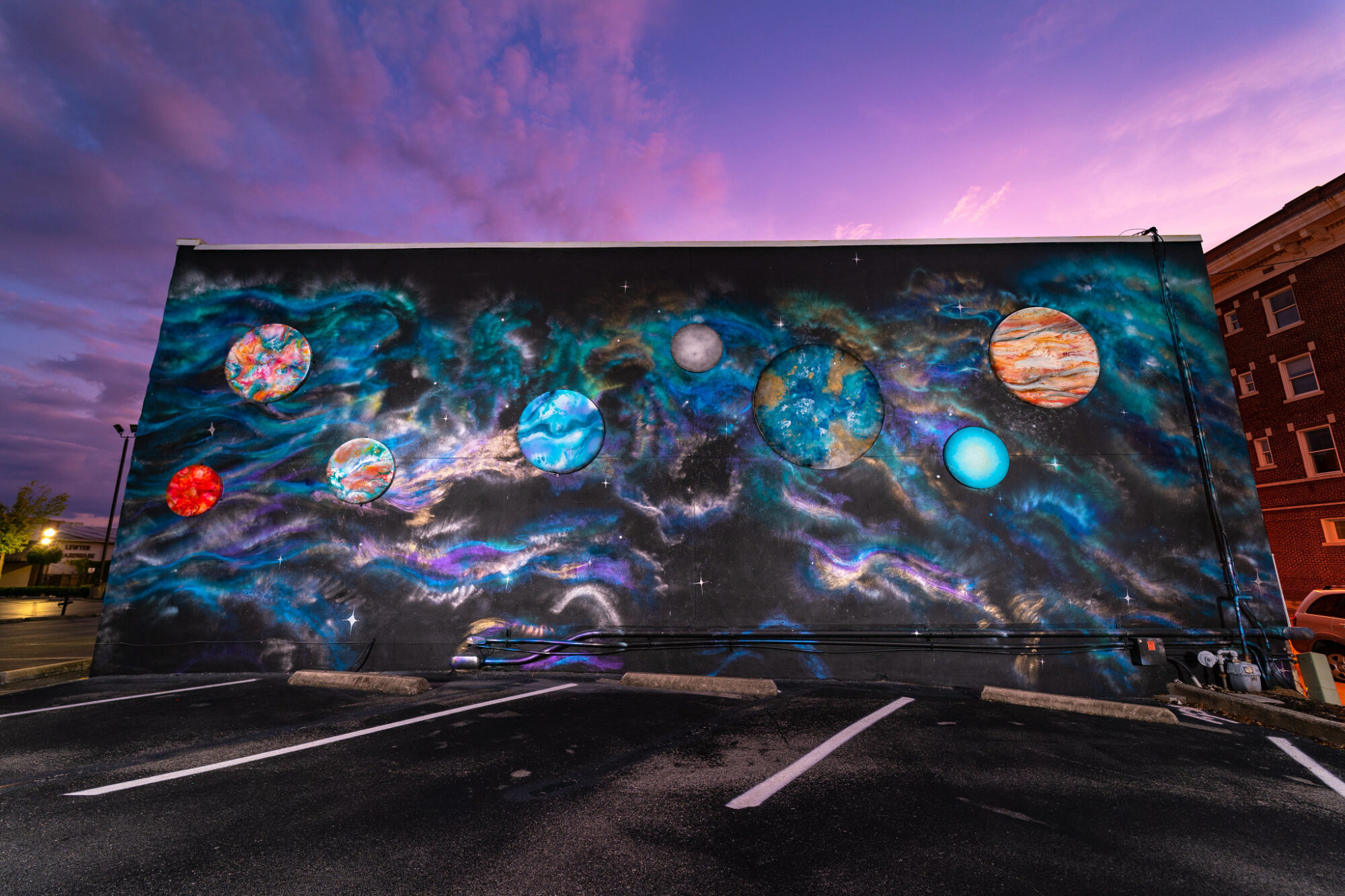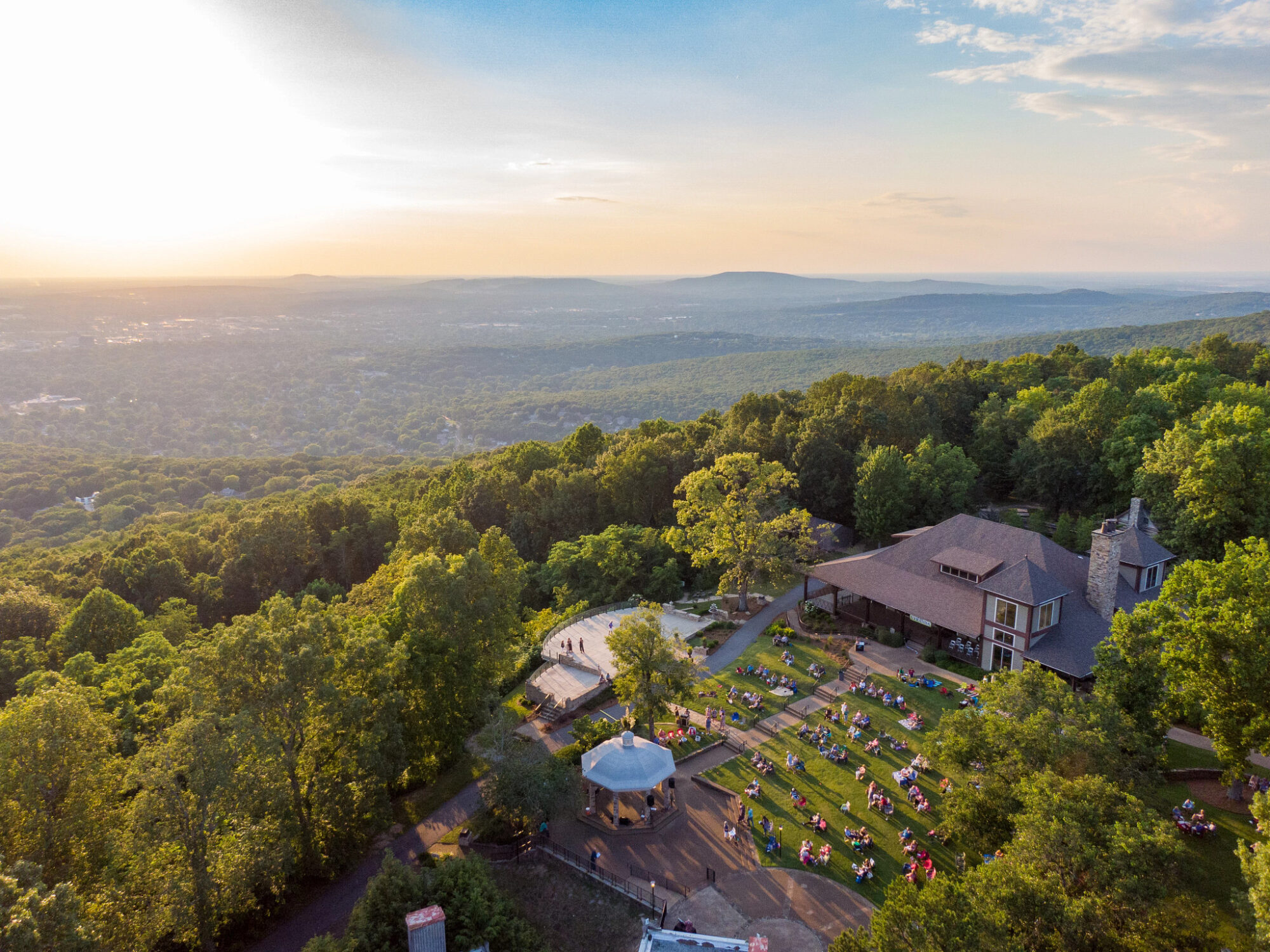Image Source: City of Huntsville
By
When President John F. Kennedy challenged Americans to send a man to the moon, he laid out a path that has brought many of the country’s brightest workforce and cutting-edge companies to Huntsville, Alabama.
More than 60 years after the famed “Moon Shot,” Huntsville is home to one of the world’s most intelligent communities, filled with residents walking in the footsteps of scientific legends like the late Wernher von Braun.
It is a city that is always looking ahead. For instance, the space engineers and rocket scientists who laid the groundwork for today’s thriving city never settled for landing a person on the moon. Their goal was to get a person to the moon and back.
To this day, Huntsville, as the longtime home of Redstone Arsenal—a major center for the U.S. Army’s missile and rocket programs—prides itself on securing Americans’ future, says Mayor Tommy Battle, now in his fifth term in office.
“We really have built upon the past,” says Battle. “And each time, we put a little block up there and then build on that block and on the next block, to get where we are today.”

Today, Huntsville is at the center of the technological revolution. Think of an industry shaping the world’s future, and you will almost surely find a company based in Alabama’s largest city.
Advanced manufacturing, biotechnology, engineering, artificial intelligence, drone technology, and, of course, aeronautics, are among the industries fueling the local economy.
Many of these companies can be found at Cummings Research Park, the second-largest research park in the country and the fourth-largest in the world. It’s there that 300 companies and organizations are seeking solutions to the world’s most pressing challenges.
“It’s the beacon of the southeast,” says Shane Davis, Huntsville’s director of urban and economic development. “With Fortune 200 and 500 companies, it’s the all-stars of the all-stars at the park.
In the latest coup for the city, President Donald Trump announced that Space Command, responsible for the country’s orbital defense systems, is relocating to Redstone Arsenal in Huntsville, bringing 1,400 on-site jobs to the base (and many more in the surrounding area), and only increasing the city’s reputation.
Huntsville is also slated to play a key role in the country’s Golden Dome satellite-based missile defense program, Mayor Battle says.

Battle takes pride in the process of earning the trust of leading CEOs, such as Blue Origin’s Jeff Bezos, and the presidential administration.
The Space Command relocation process began with a competition featuring 66 communities spread across 24 states. That list was narrowed to six finalists, which were measured twice by a selection committee. Both times, Huntsville came out first, the mayor says.
Winning the bid was a testament not just to the city’s fit for the defense program but also to Huntsville’s ambition and work ethic, says Battle.
“We were able to use that competitive edge that we have to bring in Space Command, but we use it on a daily basis,” he says.
Since Battle took office, there has been a consistent effort to make Huntsville more hospitable to industries and residents.
Highlights include:
Lucia Cape, senior vice president of economic development at The Huntsville/Madison County Chamber of Commerce, notes that about half of the region’s residents are transplants relocating for a job or starting out after college.
Retaining talents while attracting professionals who fit in with Huntsville’s “intelligence quotient” is among the city and chamber’s top priorities, says Cape. Indeed, the talent recruitment slogan is “The Smart Place.”
“That doesn’t mean everyone has to be an engineer,” Cape says. “There are so many ways to be smart. We don’t have lazy people. Our people are engaged in their careers because of a passion or an interest that they’re furthering.”

As a case in point, Battle was born in Birmingham and moved to Huntsville in 1980 after receiving a business degree from The University of Alabama. Outside of his public service, Battle’s family has left its mark on the community. His late wife, Eula Sammons Battle, was a retired kindergarten teacher and co-founder of Free 2 Teach, a program providing supplies to local educators.
For as involved as it is in space exploration and scientific breakthroughs, Huntsville has managed to keep itself grounded.
The basics, like good schools and health care, a plethora of trails and dog parks, minor league baseball and soccer, and a vibrant music scene (240 music events are on the September schedule alone), play a vital role in attracting the country’s top minds looking to settle down and raise a family, says Cape.
“This is a very comfortable place to live,” she says. “It has all the amenities without some of the headaches of a big city.”
Davis credits smart development for allowing for new neighborhoods and developments to emerge without overcrowding the city even as the population has increased to 249,102 – a 15.9 percent increase since the 2020 Census. That’s more than 34,000 new residents over the past five years, making Huntsville among the top 20 fastest-growing cities in the nation.
“We’re laser-focused on zoning,” Davis says.
As city limits have expanded at a rate of approximately 2,500 acres per year, Huntsville has employed zoning techniques that have enabled measured growth. Its annexation strategy includes applying a zoning designation to each property incorporated into the city. This approach has given the city time to complete infrastructure investments for future development.
Additionally, Huntsville has rezoned “legacy corridors” slated for commercial/retail or light industry uses, according to Davis. These efforts have spurred development projects like new residential, hospitality, and mixed-use developments on sites that were almost “forgotten,” adds Davis.
The results demonstrate success: Huntsville is the 14th largest city in America in terms of land mass, but has, by and large, avoided the traffic jams and increased cost of living seen in other booming Southern hubs, such as Austin and Nashville.
The dollar goes further in Huntsville, with Davis noting the average cost of living is 92 cents to $1. That’s an attractive feature for workers relocating with their companies and maintaining their current salary. As a result, the workforce has disposable income to dine in local restaurants, attend cultural events at The Orion Amphitheater and other venues, and shop at area retailers. They are also philanthropic, contributing to local causes and organizations, adds Cape.
Battle adds that the smart, well-paid workforce driving expansion has also convinced national chains, such as REI and The Cheesecake Factory, among others, to set up shop in Huntsville.
The developments are the result of a community-wide effort and victory for the entire region, says Battle.
“You have to have the brain trust,” says the mayor. “But you also have to have a community that works together to solve common problems. Quality of life is something we work on very, very closely.”

